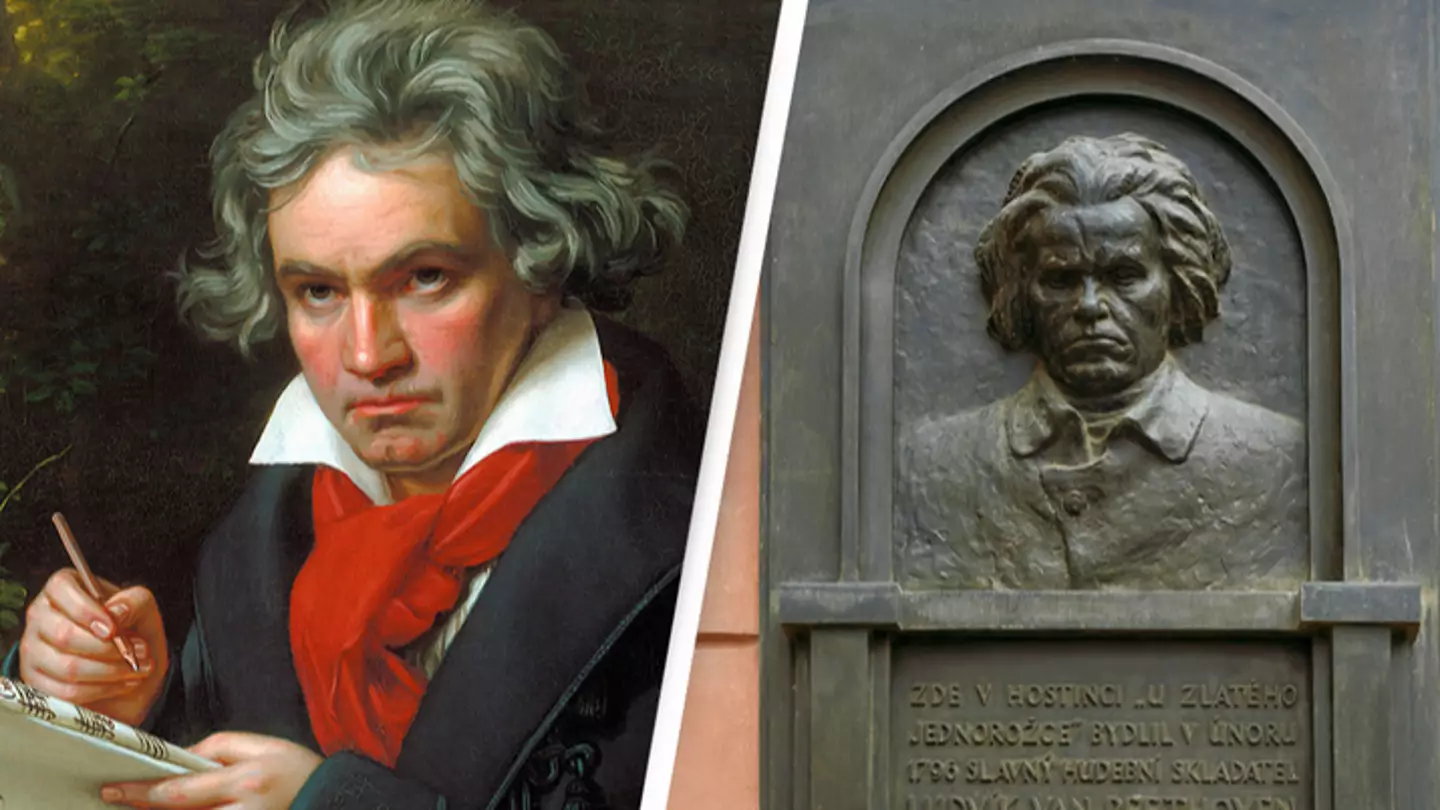
Analysis of Beethoven’s DNA from a lock of hair has revealed health problems and a family secret.
While the German composer was well known for his masterpieces, including Ode to Joy and Symphony No. 9, he led a life cursed by a series of health conditions, which he said led to ‘a wretched existence’.
Though it’s never been confirmed what led to the 19th Century musician’s death, researchers, who analyzed the DNA of preserved locks, believe they might have the answer.
"Our primary goal was to shed light on Beethoven's health problems, which famously include progressive hearing loss, beginning in his mid- to late-20s and eventually leading to him being functionally deaf by 1818," said study co-author Johannes Krause, a Professor at the Max Planck Institute for Evolutionary Anthropology in Leipzig, Germany, in a statement.
Advert

Scientists who extracted Beethoven's DNA from a tuft of hair taken from his deathbed - the best of five preserved locks - to sequence his genome say his cause of death was liver disease.
According to findings, which have been published in Current Biology, researchers say Beethoven’s liver disease was elicited by viral hepatitis, alcohol consumption and genetic factors, which was ‘the perfect storm’.
"We see a very significant risk factor for liver disease, particularly in interaction with other factors; alcoholism is a big one, hepatitis B as well," said Tristan Begg, the study's lead author and a PhD student at the University of Cambridge, as per ABC News.
Advert

Beethoven began to lose hearing in his 20s and suffered crippling bouts of ongoing vomiting and diarrhoea.
Later in life, he also began developing problems with his liver, which led to his death at the age of 56 on 26 March 1827.
The research team, however, didn’t find any genetic predisposition for early hearing loss or variants associated with complex gastrointestinal conditions such as inflammatory bowel disease, Crohn's disease or ulcerative colitis.
Advert
But they did stumble upon a family secret.
After scientists compiled the musician’s genetic profile, they compared his DNA with his relative who had lived in Belgium.
But, there was no match for the Y-chromosome in Beethoven’s hair samples.
This suggests that somewhere in the family's history, there was a male child, potentially on the composer’s father’s side, resulting from an extramarital affair.
Advert
While it means that the composer was not a real ‘Beethoven’, experts say it's impossible to tell precisely when the affair occurred; however, they believe it's somewhere between 1572 and 1700.
